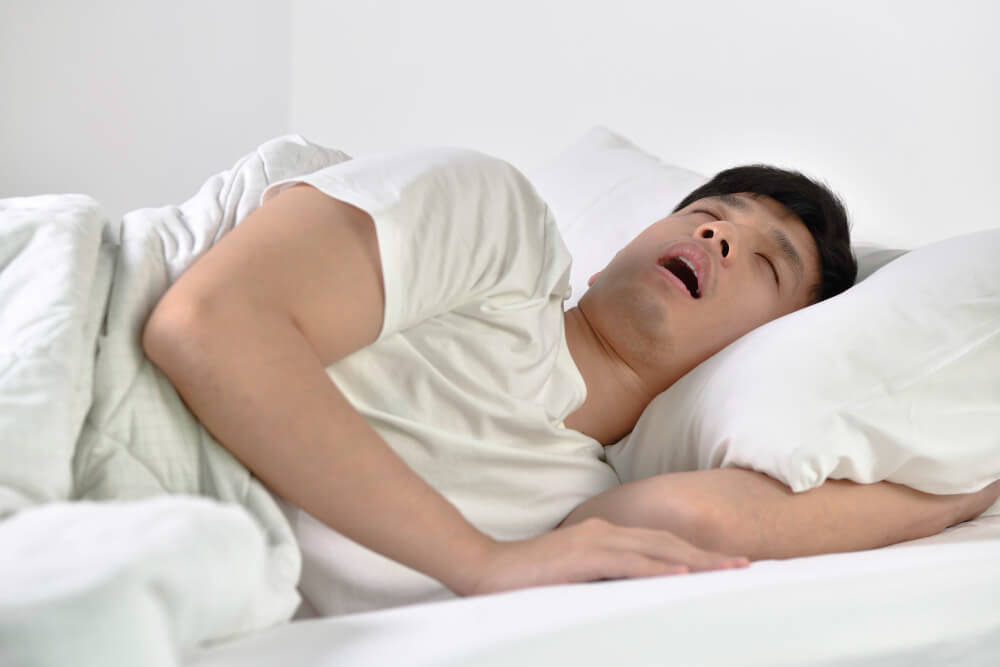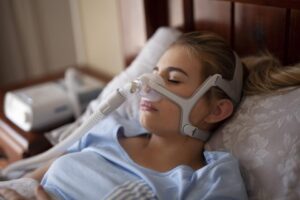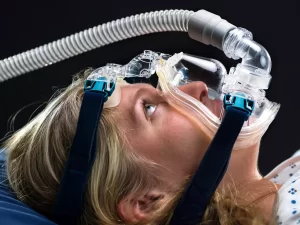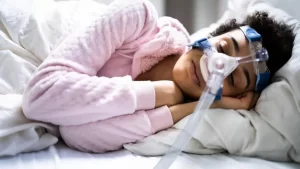Snoring can be a sign of obstructive sleep apnea (OSA), a condition where breathing repeatedly stops and starts during sleep. Not everyone who snores has sleep apnea. Snoring can also be caused by other factors such as the anatomy of your mouth and sinuses, alcohol consumption, allergies, a cold, or your weight.
Continuous Positive Airway Pressure (CPAP) is a common treatment for sleep apnea. It works by delivering a steady stream of air through a mask to keep your airways open while you sleep. However, CPAP is typically prescribed only after a formal sleep study (polysomnography) has diagnosed sleep apnea.
If you’re concerned about your snoring and whether it might be a sign of sleep apnea, it’s important to consult with a healthcare professional. They can evaluate your symptoms and, if necessary, refer you for a sleep study. Other treatments for snoring and mild sleep apnea include lifestyle changes, oral appliances, and surgery, depending on the cause and severity of the snoring.
Table of Contents
Key Takeaways
What You Need to Know About Snoring
- Prevalence: Around 25% of adults snore regularly.
- Causes: Caused by vibrations in the upper airway tissues as air passes through during sleep.
- Health risks: Usually not a health concern on its own, but can be disruptive to your sleep or your bed partner’s.
About Sleep Apnea
- Prevalence: About 5% of adults have obstructive sleep apnea, a type of sleep apnea where breathing repeatedly stops and starts during sleep.
- Causes: Caused by the airway being blocked or narrowed during sleep, often due to relaxed throat muscles.
- Health risks: Can lead to serious health problems like high blood pressure, heart disease, and stroke.
Do You Need CPAP If You Snore?
- If you only snore: You generally don’t need CPAP. Lifestyle changes like losing weight, avoiding alcohol before bed, and sleeping on your side can help reduce snoring.
- If you snore AND have sleep apnea: CPAP is the most effective treatment for sleep apnea. It delivers pressurized air through a mask to keep your airway open during sleep, preventing snoring and improving your sleep quality.
How to Know If You Have Sleep Apnea
- Symptoms: Daytime sleepiness, fatigue, morning headaches, difficulty concentrating, and loud snoring or snorting during sleep.
- Diagnosis: A sleep study can diagnose sleep apnea and determine the severity.
Understanding the Basics of Snoring
Before diving into the specifics of CPAP and its connection to snoring, let’s first understand what snoring really is. It’s the sound you make when your breathing is obstructed while you’re sleeping. This happens when the airflow through your mouth and nose is physically blocked. That blockage could be due to various factors like poor muscle tone in the throat and tongue, bulky throat tissue, or a long soft palate.
You’ve probably noticed that snoring gets worse when you’re tired, after drinking alcohol, or if you’re overweight. While it’s a common condition that can affect anyone, it’s more frequent in men and people who are overweight. But remember, not everyone who snores has a sleep disorder. Snoring could be a sign of a more serious condition like sleep apnea.
The Link Between Snoring and Sleep Apnea
While you might brush off snoring as a harmless nuisance, it can actually be a telltale sign of sleep apnea, a potentially serious sleep disorder. Sleep apnea is characterized by multiple pauses in breathing during sleep, which can lead to daytime fatigue, headaches, and even heart issues. Snoring is often one of the first indicators.
When you snore, you’re experiencing a partial blockage in your airways that produces the familiar sound. However, in sleep apnea, the blockage is more severe, causing you to stop breathing momentarily.
It’s important to note though, not everyone who snores has sleep apnea. But if you’re a chronic snorer, it’s worth getting checked out. After all, a good night’s sleep is crucial for your overall health.
Diagnosing Sleep Apnea
If you’re frequently snoring and experiencing symptoms like daytime fatigue and headaches, it’s essential to understand the process of diagnosing sleep apnea.
First, your doctor may conduct a physical examination, focusing on your throat, mouth, and nasal passages. They’ll likely ask about your symptoms and sleep habits.
You might be asked to participate in a sleep study, either at home or in a lab. This involves monitoring your heart, lung and brain activity, breathing patterns, arm and leg movements, and blood oxygen levels while you sleep.
Another diagnostic tool is the Epworth Sleepiness Scale, a questionnaire assessing your daytime sleepiness.
If you’re diagnosed with sleep apnea, treatment options like a CPAP machine can help manage your symptoms and improve your sleep quality.
What Is CPAP Therapy?
Let’s dive into understanding CPAP therapy, a widely used treatment that can significantly improve your sleep if you’re living with sleep apnea.
CPAP, or Continuous Positive Airway Pressure therapy, uses a machine that delivers a constant flow of air through a mask worn while you sleep. This steady stream of air keeps your airway open, preventing pauses in breathing that characterize sleep apnea.
You’ll wake up feeling refreshed, without the morning headaches or daytime fatigue often associated with this condition.
It’s important to remember, though, that while CPAP can be a game-changer, it’s not a cure. You’ll need to use it every night for it to be effective. But don’t worry, most people adjust to it quickly and find the benefits outweigh any initial discomfort.
Deciding if CPAP Is Right for You
So, you’ve got a grasp on what CPAP therapy is, but how do you determine if it’s the right treatment for your snoring or sleep apnea issues?
First, you’ll need a sleep study to confirm the diagnosis. If results show you have sleep apnea, the severity will guide the next steps. Mild cases might improve with lifestyle changes like losing weight or quitting smoking.
But if you’re dealing with moderate to severe sleep apnea, CPAP is often the first line of treatment. Think about your comfort, too. Can you get used to sleeping with a mask on? Remember, it’s key to use it every night for it to work.
Discuss your concerns with your doctor to make an informed decision.
Frequently Asked Questions
What Other Treatments Are Available for Snoring Aside From CPAP Therapy?
Other treatments for snoring include:
- Lifestyle changes like losing weight or quitting smoking.
- Positional therapy.
- Oral appliances.
- Surgery.
It’s best to consult your doctor for personalized advice.
Are There Lifestyle Changes I Can Make to Reduce My Snoring?
Yes, you can make lifestyle changes to reduce snoring.
Try losing weight, quitting smoking, avoiding alcohol before bed, and changing your sleep position.
It’s also important to keep a regular sleep schedule.
Is Snoring a Sign of Other Potential Health Problems?
Yes, snoring can be a sign of other health problems, like sleep apnea or heart issues.
It’s not always serious, but you should get checked out by a doctor to be on the safe side.
Can Weight Loss Help Reduce Snoring or Sleep Apnea?
Yes, weight loss can indeed help reduce your snoring or sleep apnea.
Excess weight contributes to sleep apnea by creating fatty tissue in the throat, which can disrupt airflow.
Losing weight might alleviate these symptoms.
Can Children Also Use CPAP for Their Snoring Problems?
Yes, children can also use CPAP for snoring problems.
However, it’s crucial to consult a pediatrician first.
They’ll determine if it’s just normal snoring or a sign of a more serious condition like sleep apnea.
Conclusion
So, you’ve been snoring and wonder if a CPAP is what you need. It’s important to remember that snoring doesn’t always mean you have sleep apnea. However, if you’re experiencing other symptoms, it’s worth getting diagnosed.
A CPAP can be a game-changer, but it’s not for everyone. Talk to your doctor, weigh the pros and cons, and decide if it’s the right solution for you.
Your peaceful night’s sleep could be just around the corner.




